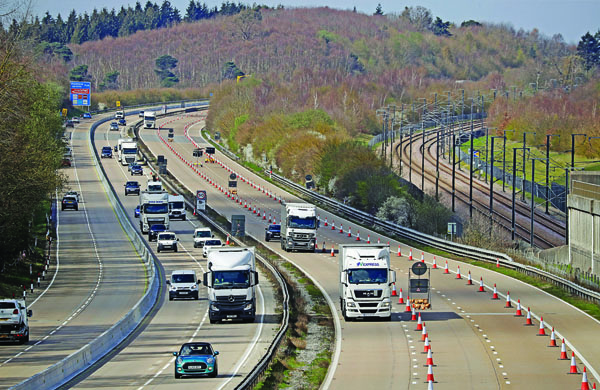Europe to introduce car speed-limiting technology

Measures could drastically reduce accident numbers

All vehicles sold in Europe after 2022 will be fitted with speed-limiting technology under new rules agreed by the European Union.
The EU hopes the plan will avoid 140,000 serious injuries caused by cars by 2038, and the British government said it will go along with the scheme, regardless of how the country's exit process from the EU, known as Brexit, develops.
"Every year, 25,000 people lose their lives on our roads. The vast majority of these accidents are caused by human error,"said EU Commissioner ElzbietaBienkowska.
"With the new advanced safety features that will become mandatory, we can have the same kind of impact as when safety belts were first introduced."
The system, known as intelligent speed assistance or ISA, is one of several new driver safety proposals from the EU.Others include car data recorders and employing technology to reduce driver drowsiness or distraction.
Leading manufacturers such as Ford, Renault and Volvo already have ISA fitted in some models. The system uses GPS and digital maps for the car to be told what the speed limit is in the area that is being driven, with a temporary override facility available.
It is hoped the technology will encourage better driver behavior,and the use of data recorders similar to aeroplane black boxes could have an even bigger impact, providing police and insurance companies with accurate data about accidents. This could also help reduce insurance premiums.
"Any steps that can be shown to make our roads safer, reducing road crashes and insurance claims, can be reflected in the cost of motor insurance," said a statement from the Association of British Insurers.
Antonio Avenoso, executive director of the European Transport Safety Council, said it could be a landmark moment in safety history.
"There have only been a handful of moments in the last 50 years which could be described as big leaps forward for road safety in Europe," he said. "The mandatory introduction of the seatbelt was one, and the first EU minimum crash safety standards, agreed in 1998, was another. If (the) agreement is given the formal green light, it will represent another of those moments."
The European Parliament elections in May must take place before the measures are formally approved, but organizations such as United Kingdom road safety charity Brake welcomed the prospect, saying speed was a factor in around one quarter of all fatal crashes in the UK.
"These measures will provide the biggest leap forward for road safety this century," said Brake's campaigns director Joshua Harris. "This is a landmark day for road safety."
British drivers' body the Automobile Association gave the news a more guarded welcome, praising the importance of improved braking systems and warning that ISA is not necessarily the answer.
"When it comes to intelligent speed adaptation, the case is not so clear," said AA president Edmund King. "The best speed limiter is the driver's right foot.The right speed is often below the speed limit - for example, outside a school with children about - but with ISA, there may be a temptation to go at the top speed allowed."

































